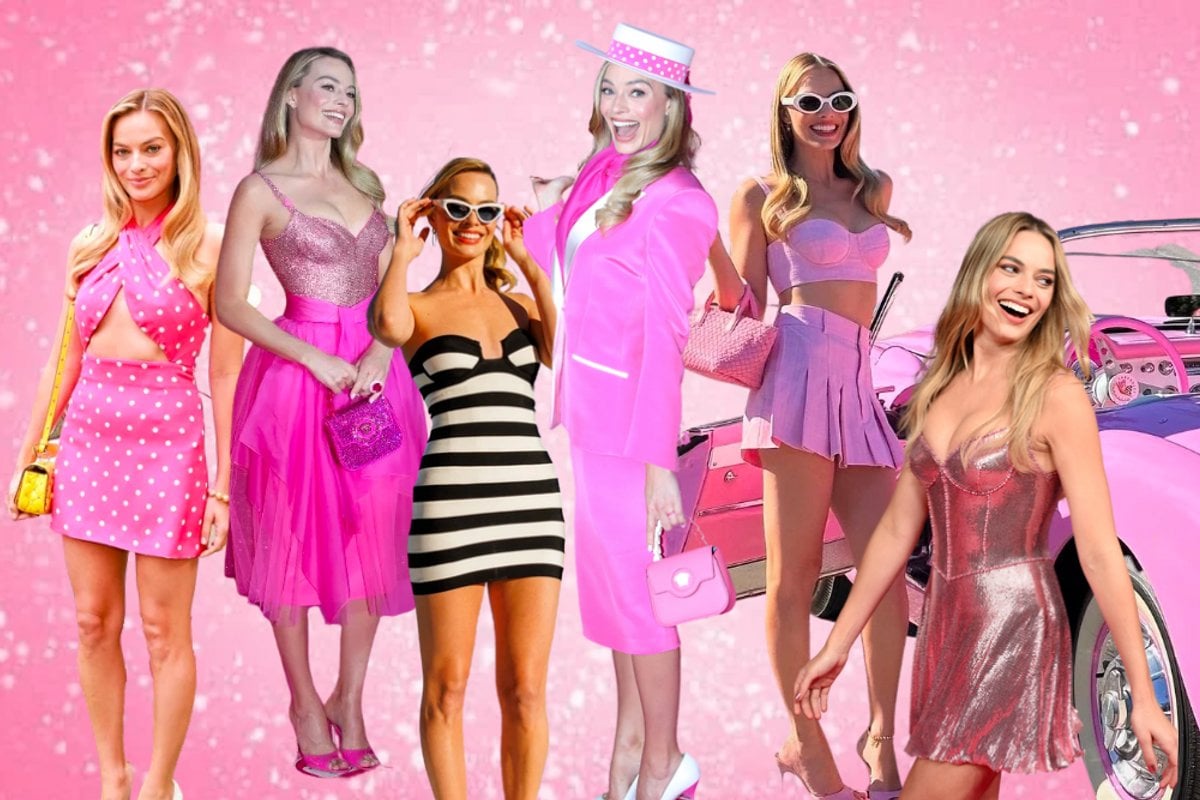
We need to take a closer look at the oh-so-hyped Barbie movie.
I am as excited as everyone else for this new movie. Heck, pink is my favourite colour! And I will 100 per cent be lining up outside the cinema to see it the second it drops.
But I noticed something and now I’ve seen it, I… can’t unsee it.
Despite all the buzz about diversity and inclusivity, there’s one inevitable truth we cannot ignore: our leading lady is still a tall, thin, blonde bombshell, epitomising the very traditional standards of beauty and feminity that the (some would say problematic) doll has represented since its inception.
You can watch the Barbie movie trailer right here. Post continues after video.
Barbie has been getting a lot of attention and for good reason. It's the movie we’ve been waiting nearly 15 years for, directed by Greta Gerwig, AKA everyone’s favourite feminist film icon, and starring Margot Robbie (also a proud feminist) as Barbie herself.
The supporting cast is a who’s-who of Hollywood’s finest – America Ferrera, Issa Rae, Dua Lipa, Ryan Gosling, Helen Mirren, Michael Cera, John Cena, Kate McKinnon, Simu Liu… I mean, the list goes on and on. This is a bloody huge ensemble cast, and on the surface, it seems like the movie is going to be a progressive and inclusive take on the iconic doll and her world.
Top Comments